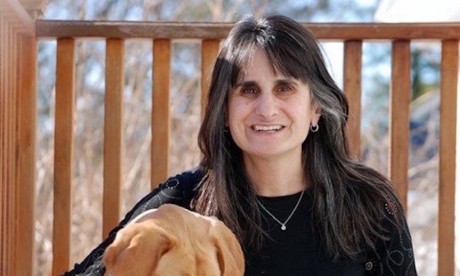Dad’s face was gaunt, with skin hugging his high cheekbones and gray stubble enveloping his chin and upper lip. His bony shoulders poked out from a baggy blue-plaid hospital gown, and his hands shook when he tried to raise them.
Just a month ago, we had been celebrating my birthday at a hibachi restaurant, where Dad’s only medical problem seemed to be his inability to hear conversation in such a noisy place. He sat at the end of the u-shaped table, with his good ear next to his granddaughter.
Now, he was confined to a hospital bed on the oncology floor of a local hospital at the lowest point in a regimen of chemotherapy. He was suffering from the debilitating side effects of chemo drugs destroying the cancerous cells in a tumor just below his colon.
Although his speech barely rose above a whisper, the poetry he was repeating in an age-old cadence was clear: “Holy Mary, Mother of God, pray for us sinners now and at the hour of our death.”
Thankfully, it was not the hour of his death—not then, and not today, eight months later. But during the worst hours of his life, he summoned the grace of Mary, chanting the prayer as a soothing meditation, humming the prayer as a soft lullaby, mouthing the therapeutic words when speech failed him.
It isn’t often that I see faith manifested in such a simple, unornamented way. During the deepest and darkest days of suffering, Dad turned to God—not to beg or bargain but to find solace from suffering and comfort from Catholicism.
Witnessing his quiet faith in action brought me back the meaning of prayer in the very basics of life, death and faith.
Dad’s faith cleared away the clutter of my own Catholicism. Continue reading
- Shirley Salemy Meyer is a former newspaper reporter who teaches in the College Writing Program at Fairleigh Dickinson University in Madison, New Jersey.
News category: Analysis and Comment.




